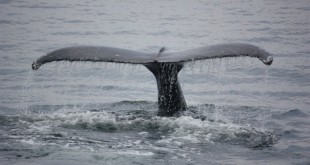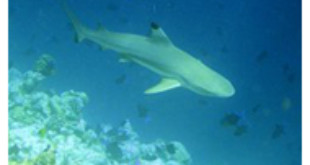Article by Professor Daniel Pauly Scientist and author Daniel Pauly says that we have caught most of the big fish, and now we are actually starting to eat the bait. Squid was just bait a while ago and now it”s on our plates and we call it “calamari”. Eating jellyfish …
February, 2010
-
17 February
Dealing in Whales
Dealing in Whales: an Aide Memoir aboutrestoring th Functionality of the IWC Current back-room talks about what might be conceded to Japan if its Government would agree to rein in whaling – especially in the Southern Ocean Whale Sanctuary (SOWS) through award of Special Permits under Article VIII of the …
-
8 February
Bluefin Tuna
Bluefin tuna faces a devastating future and a devastating future for a species means an uncertain future for all of us. The increasing voracious appetite for sushi and sashimi, the greed and the lack of a governmental organisation able to claim responsibility for it is taking the bluefin tuna to …
January, 2010
-
14 January
Shark Fin Soup Facts
It wouldn’t be news if I told you our planet has its environmental problems. We’re making some progress in controlling what we put into the air, put into our landfills and even put into our oceans. But we’re not paying enough attention to what we are taking out of our …
-
12 January
Ocean Acidification Increases Our Ecological Debt
Economists claim the financial crisis, driven by a decade-long boom of housing and consumption-related indebtedness, is almost over. Maybe so. But our ecological debt continues to grow. Just as it is a truism in business that a heavy dependence on borrowed money produces short-term gain and long-term pain, we have …
-
9 January
The Beginning of the End for Life as We Know it on Planet Earth?
There is a Biocentric Solution. Commentary by Paul Watson Founder and President of Sea Shepherd Conservation Society Does humanity have a future? We are presently living in what conservation biologists refer to as the Holocene extinction event. This is the sixth global mass extinction event in last 439 million years.
-
8 January
Why is it still acceptable to eat the endangered large predators of the sea?
By George Monbiot To Ransom A. Myers, who died on March 27th. If these animals lived on land there would be a global outcry. But the great beasts roaming the savannahs of the open seas summon no such support. Big sharks, giant tuna, marlin and swordfish should have the conservation …
December, 2009
-
9 December
Jellyfish invasion a sign of trouble to come
World leaders attending the U.N. climate conference in Copenhagen most likely will not discuss the invasion of the jellyfish, but perhaps they should. While it might sound like the stuff of a B horror movie, millions of jellyfish — some the size of refrigerators — are swarming coastlines from Spain …
November, 2009
-
22 November
The Politics of Extinction
Remain a parasite OR become an Earth Warrior Article by Captain Paul Watson We are at the present time living in an age of mass extinction. Each year, more than 20,000 unique species disappear from this planet forever. This represents more that two species per hour. Species extinction is the …
-
11 November
Life depends on the oceans
It”s often said that we know as much about Mars and the moon as we do about our oceans. Considering that Earth is 71 per cent ocean, this should be cause for concern. At the very least, we should be doing more to protect our oceans from the negative effects …
-
10 November
Concerns raised over Marine Stewardship Council’s fish label
An eco-labelling scheme intended to encourage people to eat fish from sustainable sources is being criticised by conservationists. The collaboration between the conservation group WWF and Unilever, until recently one of the world’s biggest seafood retailers, now gives its stamp of approval to $1.5 billion (£900 million) of business every …
-
9 November
Who are the Real Pirates in Somalia?
Sociologist Peter Berger has instructed that “The first wisdom of Sociology is that things are not what they seem.” So it is with the Western media rendition of their piracy stories from Somalia. An article in the London-based Independent newspaper has confirmed the suspicions of many that behind the Western …
 Ocean Sentry
Ocean Sentry











